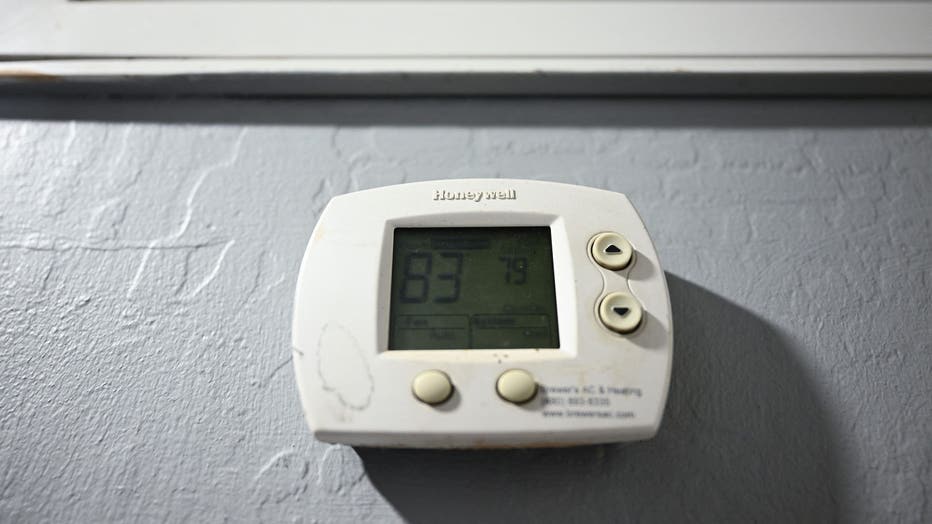Here's how extreme heat is impacting electric bills
Roughly 70% of Americans say extreme heat has impacted their electric bills over the past year, making rising temperatures a more common problem for people than other weather events or natural disasters, according to a poll from The Associated Press-NORC Center for Public Affairs Research.
About 4 in 10 Americans say they've had unexpectedly expensive utility bills in the past year because of storms, flood, heat, or wildfires, including nearly half of homeowners.
But the level of impact extreme heat has on Americans depends on where in the U.S. they live – and maybe more surprising, their political beliefs.
READ MORE: Woman dies after running out of water, hiking near Utah state park in extreme heat, officials say
How hot is it on Earth?
Last year Earth was 2.66 degrees warmer than it was before pre-industrial times, according to the European climate agency Copernicus. It may sound insignificant, but temperatures are fluctuating unevenly across the globe, and that can be harmful to human health.
RELATED: Death Valley visitor suffers third-degree burns on feet amid extreme heat
Several regions of the U.S. have set all-time temperature records this summer, and Las Vegas reached a scorching 120 degrees Fahrenheit on July 7. Death Valley, California, the hottest place on Earth, experienced its warmest month on record in July with an average temperature of 108.5 degrees.
Where is extreme heat the worst?

A Honeywell air conditioning thermostat is seen in a house during a record heat wave in Phoenix, Arizona on July 19, 2023. (Photo by PATRICK T. FALLON/AFP via Getty Images)
Extreme heat negatively impacts more people in the West and South U.S. About half of people living in the West say their sleep has been impacted at least in a minor way by extreme heat, while about 4 in 10 people living in the South say their sleep has been impacted, compared to about 3 in 10 people living in the Midwest and Northeast.
People living in the West and South are also more likely to report that extreme heat affects their exercise levels.
RELATED: These cities feel a lot hotter than the actual temperature due to urban heating
Other aspects of daily life – like jobs and commutes, the timing of events like weddings and reunions, and travel and vacation plans – have been less broadly disrupted, but their impact is disproportionately felt among specific groups of Americans. About one-quarter of Americans say that their travel or vacation plans have been impacted by extreme heat, with Hispanic and Black Americans more likely than white Americans to say this.
Even simply enjoying time outside has become more difficult for some. The poll found that about 6 in 10 Americans say extreme heat has impacted outdoor activities for themselves or their family.
How climate change beliefs impact polling
About 7 in 10 U.S. adults who have experienced some type of severe weather events or weather disasters in the last five years say they believe climate change was a contributing factor. Three in 10 think climate change was not a cause.
People who don't believe climate change is real generally are less likely to report being affected by extreme heat. Roughly 8 in 10 Americans who believe in climate change say extreme heat has had an impact on their utility bills. About half of Americans who have doubts about climate change say their electric bills have been affected.
RELATED: From orbit, NASA maps streets where extreme heat will burn you in seconds
According to the Associated Press, 70% of U.S. adults say climate change is happening. Of those, about 6 in 10 say it’s entirely man-made, while 3 in 10 say it’s caused by both human activities and natural environmental changes. Nine in 10 Democrats, 7 in 10 independents and about half of Republicans say climate change is happening.
About half of Americans say they’ve become more concerned about climate change over the past year.
The Associated Press contributed to this report.

